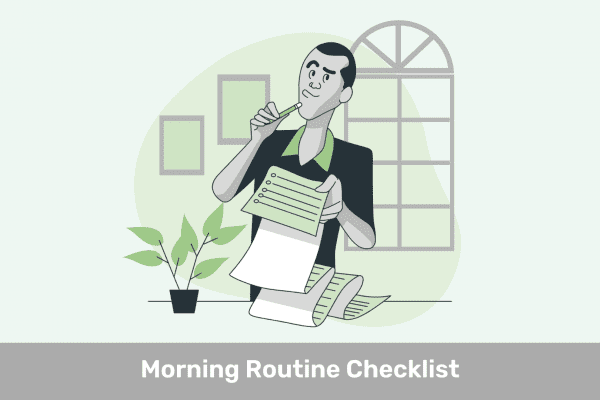Introduction
How Is My Commute to Work? Transitioning It into Valuable ‘Me Time’
Daily commutes have long been considered a necessary, albeit often tedious, part of our daily routines. For millions of people around the world, the daily trek to and from work is an unavoidable reality. Commuting can encompass various modes of transportation, from car rides to train journeys, bus rides to walking or cycling. Regardless of how we get to our destination, commutes typically consume a significant portion of our daily lives. The statistics are both astonishing and eye-opening:
According to the U.S. Census Bureau, the average American spends approximately 52 minutes per day commuting. That’s over four hours a week and more than nine full days a year spent in transit.
In the UK, the Office for National Statistics reports that workers spend an average of 59 minutes commuting each day, which amounts to a staggering 26 full days over the course of a year.
Globally, the average one-way daily commute is 38 minutes, which totals to over 300 hours per year spent in transit.
These statistics reveal the remarkable amount of time we dedicate to our commutes. Often seen as time lost, the daily journey from home to work, and vice versa, presents a unique opportunity for personal growth, relaxation, and self-improvement.
Transitioning from a Chore to ‘Me Time’
Imagine if you could transform those hours spent in transit from mere chores into something deeply meaningful. The key is to shift your perspective and start viewing your daily commute as ‘Me Time’ – a valuable period in your day that you can use to enhance your life physically, mentally, and emotionally. Instead of resenting the time you spend on the road, embrace it as an opportunity to focus on yourself, your well-being, and your personal development.
In this comprehensive article, we will explore various strategies and techniques to help you transition your daily commute into valuable ‘Me Time.’ We will delve into mindfulness and meditation practices, discuss how to make your commute a hub of knowledge and learning, and offer insights on maintaining your physical and mental health. You’ll also discover how to engage in creative activities, strengthen your connections with loved ones, and manage your time effectively.
From turning your car into a mobile classroom to finding peace and relaxation on a crowded subway, this article will provide you with the tools and inspiration you need to make the most of your daily commute. By the end of this journey, you’ll see your daily transit time not as a chore, but as an opportunity for self-improvement, well-being, and personal growth. So, let’s embark on this transformation together and make your daily commute truly ‘Me Time.’
Acknowledging Commute Challenges
A. Identifying Common Commute Frustrations
‘How is my commute to work?’ often triggers a sense of frustration and inconvenience. This is because, for many of us, daily commutes can be riddled with common challenges. To truly maximize your daily commute, it’s essential to acknowledge these challenges and find effective ways to overcome them.
It is often marred by the following frustrations:
- Traffic Congestion: Whether you’re driving or in a bus, getting stuck in traffic jams is an all too familiar frustration. The minutes spent in gridlock can easily turn into hours every week.
- Overcrowded Public Transportation: For those using public transport, the stress of squeezing into crowded trains or buses can be overwhelming.
- Time Wastage: Time spent commuting is often seen as unproductive and lost. Many feel that it’s a period in their day when they could be doing something more meaningful.
- Stress and Anxiety: Commuting in crowded, noisy, or unpredictable environments can lead to increased stress and anxiety levels. The very thought of ‘How is my commute to work’ can trigger stress.
B. Stress and Time Wastage
One of the most significant challenges associated with daily commutes is the emotional toll they can take. It is often followed by a sigh of resignation. The stress associated with daily commutes can negatively impact your well-being and overall quality of life.
Time wastage is another critical issue. The hours spent commuting can feel like time stolen from more productive or enjoyable activities. This sense of lost time can contribute to feelings of frustration and disappointment.
C. The Need for a Shift in Perspective
To make the most of your daily commute, a shift in perspective is required. Instead of viewing it as a daily chore or a waste of time, consider it as an opportunity for personal growth, self-improvement, and well-being. Changing your outlook can turn a seemingly mundane daily routine into a source of enrichment and fulfillment.
Planning for Productive Commuting
A. Setting Goals for Your Commute Time
The key to turning your daily commute into valuable ‘Me Time’ is to start with a clear sense of purpose. One effective way to do this is by setting specific goals for your commute time. By answering the question ‘How is my commute to work going to contribute to my personal growth?‘ you can create a framework for a more meaningful journey.
Consider setting goals such as:
- Learning: Use your commute to acquire new knowledge or skills. Whether it’s learning a new language, exploring a new subject, or keeping up with industry trends, the commute provides an excellent opportunity for mental enrichment.
- Wellness: Focus on your mental and emotional well-being. You can use this time for mindfulness and stress reduction exercises, like meditation or deep breathing.
- Personal Growth: Think about how you can work on personal development during your commute. This might involve setting aside time for self-reflection, journaling, or setting life goals.
- Productivity: If your job allows, you might want to use your commute time to get a head start on your work tasks or prepare for meetings, making your transition into the workday smoother.
B. Preparing the Night Before
One of the keys to successful commuting is preparation. By taking care of certain tasks the night before, you can make your mornings less hectic and your commutes more productive. This proactive approach to your daily routine can significantly reduce stress and help you to answer the question ‘How is my commute to work’ with enthusiasm.
Consider these pre-commute preparation steps:
- Outfit and Lunch: Select your work attire and pack your lunch or snacks the night before to save valuable time in the morning.
- Bag or Briefcase: Ensure that you have all the necessary items, such as your laptop, notebooks, and work-related materials, organized and ready to go.
- Travel Essentials: Check that you have your commuting essentials, like your bus pass, train card, or car keys, readily accessible.
- Technology: Make sure your devices, whether for work or personal use, are fully charged and ready for use during your commute.
C. Creating a ‘Commute Toolkit’
To make your commute as productive and enjoyable as possible, consider creating a ‘commute toolkit.’ This toolkit can consist of various items and resources tailored to your specific goals for your commute time.
Your ‘commute toolkit’ might include:
- Reading Material: Bring books, e-readers, or physical copies of articles related to your interests or professional development.
- Headphones and Playlists: Curate playlists or podcasts that align with your goals, whether that’s for learning, relaxation, or motivation.
- Notebooks and Journal: Carry a notebook or journal for jotting down thoughts, ideas, or goals during your commute.
- Apps and Mobile Tools: Install apps that help with productivity, language learning, or mindfulness.
Mindfulness and Meditation during Commutes
A. Introduction to Mindfulness during Commutes
Mindfulness is a powerful practice that can transform your daily commute into a time of reflection, calmness, and self-awareness. The term ‘mindfulness’ often evokes images of peaceful meditation sessions in serene environments, but the reality is that you can practice mindfulness even in the midst of a bustling commute.
When you ask yourself ‘How is my commute to work?’ you can start by introducing the concept of mindfulness. It involves being fully present in the moment, acknowledging your thoughts and surroundings without judgment, and cultivating a sense of inner peace.
B. Techniques for Practicing Mindfulness
- Focused Breathing: Start by simply focusing on your breath. Pay attention to the sensation of your breath as you inhale and exhale. If your mind begins to wander, gently bring your focus back to your breath.
- Body Scan: Progressively scan your body from head to toe, noting any areas of tension or discomfort. This technique can help you identify and release physical stress during your commute.
- Observing Your Surroundings: Instead of mindlessly staring out the window, make an effort to truly see your surroundings. Observe the passing scenery, the people around you, and the sounds of your commute.
- Guided Meditations: There are many mobile apps and podcasts that offer guided mindfulness and meditation sessions tailored to various aspects of your well-being.
- Mindful Listening: Tune into the sounds of your commute, whether it’s the hum of the engine, the chatter of fellow commuters, or the rhythm of your footsteps. Listening mindfully can be a calming and centering experience.
C. Benefits for Mental Well-Being
Practicing mindfulness during your commute can bring about numerous benefits for your mental well-being.
- Stress Reduction: Mindfulness techniques can help reduce stress and anxiety, providing a moment of calm in the midst of a hectic day.
- Improved Focus and Productivity: By starting your day with a clear mind and a sense of presence, you’re more likely to be focused and productive once you arrive at work.
- Enhanced Emotional Resilience: Mindfulness can boost your emotional resilience, helping you to handle challenging situations with greater equanimity.
- Enhanced Problem Solving: The clarity of mind that mindfulness cultivates can aid in creative problem-solving and decision-making.
- Greater Well-Being: Over time, practicing mindfulness during your commute can lead to an overall sense of well-being and contentment.
Learning on the Go: Gaining New Skills During Commutes
A. Incorporating Education and Self-Improvement
It’s essential to recognize that your daily journey can be an excellent opportunity for continuous learning and self-improvement. Whether you’re interested in expanding your knowledge, mastering a new language, or acquiring valuable skills, your commute time can become a hub for education.
B. Audiobooks, Podcasts, and Language Learning
- Audiobooks: Audiobooks are a fantastic way to transform your commute into a mobile library. Whether it’s a novel, a non-fiction book, or self-help literature, audiobooks can provide you with hours of valuable content. Many apps and platforms offer a wide selection of audiobooks that cater to various interests and genres.
- Podcasts: Podcasts are a treasure trove of information and entertainment. From TED Talks to educational podcasts, you can find content that aligns with your goals and interests. Podcasts are an excellent medium for staying informed and engaged during your daily commute.
- Language Learning: If you’ve ever thought about learning a new language, your daily commute can be the perfect time to start. There are language learning apps and podcasts that provide lessons and practice, making it easy to embark on a linguistic journey while on the go.
C. Gaining New Skills During Commutes
Your commute is an opportunity to gain new skills and knowledge. Consider the following approaches:
- Professional Development: If you’re looking to advance in your career, use your commute to study industry-related materials, listen to business podcasts, or catch up on the latest trends and news in your field.
- Online Courses: Many online learning platforms offer mobile-friendly courses that you can access during your commute. Whether it’s coding, digital marketing, or graphic design, your commute time can be transformed into a virtual classroom.
- Creative Skills: Have you ever wanted to learn how to play a musical instrument, draw, or write creatively? Invest in a skill that brings you joy and use your commute to practice.
- Mindset and Personal Growth: There are numerous self-help and personal development audiobooks and podcasts that can help you build a growth mindset, improve your relationships, and boost your confidence.
Digital Detox and Self-Reflection during Commutes
A. The Importance of Disconnecting
In a hyper-connected world, it’s easy to find ourselves constantly tethered to our digital devices, often answering ‘How is my commute to work?’ with the same screen-time routine. However, your daily commute can be an excellent time to disconnect from the digital noise, which is crucial for your mental well-being.
The importance of disconnecting during your commute:
- Constant notifications and information overload can elevate stress levels. Disconnecting during your commute can create a peaceful mental environment.
- A break from screens can spark creativity. Your mind is free to wander and generate new ideas and solutions.
- Overusing digital devices can diminish your ability to focus. Disconnecting allows you to regain concentration.
- Using your commute to reflect rather than scroll can improve your interpersonal relationships. You become more present for conversations and connections.
B. Journaling and Self-Reflection Exercises
Use your commute as an opportunity for self-reflection and introspection. The act of journaling and self-reflection can provide a structured meaning to your commute with the intent of mental clarity and growth. Consider these practices:
- Write down things you’re grateful for. Focusing on the positive aspects of your life can shift your perspective and boost your mood.
- Reflect on your current emotions and thoughts. Acknowledging your feelings can help you process and address them.
- Use your commute time to outline your short-term and long-term goals. Clarifying your aspirations can motivate you throughout the day.
- Sketch, doodle, or write creatively in a journal. These creative outlets can provide an emotional release and allow you to explore your thoughts and feelings.
- If you’re grappling with a particular issue, consider using your commute to brainstorm solutions. Sometimes, a fresh perspective can lead to breakthroughs.
C. Promoting Mental Clarity
Engaging in a digital detox and self-reflection exercises during your commute can promote mental clarity in several ways:
- Disconnecting helps declutter your mind. With fewer distractions, you can concentrate on your thoughts and priorities.
- Self-reflection aids in recognizing and managing your emotions, promoting emotional stability and well-being.
- Mental clarity can boost productivity. When your thoughts are organized, you can approach your tasks with a clearer mindset.
- Self-reflection fosters self-awareness, allowing you to understand your values, strengths, and areas for personal growth.
Fitness and Health Activities during Commutes
A. Staying Active During Commutes
Your daily commute doesn’t have to be a sedentary experience. By incorporating physical activity into your journey, you can achieve a sense of well-being and fitness. Here are some ways to stay active:
- Walking or Biking: If your commute allows, consider walking or biking to work. This not only helps you stay active but also reduces your carbon footprint.
- Public Transport Agility: If you use public transportation, make an effort to stand rather than sit during your ride. Standing engages your leg muscles and can help improve your balance.
- Active Commuting Apps: Some mobile apps offer gamified experiences that encourage physical activity during your commute, such as tracking steps and rewarding your efforts.
B. Stretching and Simple Exercises
Even if your commute doesn’t involve a lot of physical activity, you can still incorporate stretching and simple exercises to maintain flexibility and prevent stiffness. Here are some easy exercises:
- Seated Stretches: While seated, gently stretch your legs and arms to alleviate tension and increase blood circulation.
- Isometric Exercises: These exercises involve contracting your muscles without changing their length. For example, you can contract and release your abdominal muscles or squeeze and relax your glutes.
- Neck and Shoulder Rolls: Roll your neck and shoulders to release tension and improve posture.
C. Mental and Physical Health Benefits
Engaging in fitness and health activities during your commute offers a range of benefits for both your mind and body:
- Physical activity can help clear your mind and reduce stress, allowing you to start your workday with mental clarity and focus.
- Exercise releases endorphins, which are natural mood lifters. You’ll likely experience a more positive mood during and after your commute.
- Regularly incorporating activity during your commutes contributes to your overall physical fitness and well-being.
- Physical activity provides a boost of energy, ensuring that you’re alert and ready to tackle your day.
- Staying active helps manage your weight and can contribute to long-term health benefits.
- Stretching and engaging in simple exercises can help maintain good posture and reduce the risk of musculoskeletal issues.
Connecting with Loved Ones during Commutes
A. Leveraging Technology for Positive Interactions
Modern technology has made it easier than ever to connect with loved ones during your daily commute. The question ‘How is my commute to work?’ can be answered with the joy of strengthening relationships through digital means. Here’s how you can leverage technology for positive interactions:
- Video Calls: Use video calling apps to have face-to-face conversations with family and friends. Seeing their expressions and environment can make you feel more connected.
- Voice Messages: Send voice messages to loved ones, sharing updates, stories, or simply expressing your feelings. Hearing your voice can be more personal than text messages.
- Text Messaging: Even simple text messages can help you maintain a connection during your commute. Send a message to check in, share a joke, or express your love and care.
- Shared Playlists or Podcasts: Collaborate with loved ones on creating playlists or podcasts. You can share your music or content preferences and discuss them later, deepening your connection.
B. Maintaining Relationships During Commutes
- Daily Updates: Use your commute time to share daily updates with loved ones. You can discuss your day, share interesting anecdotes, or even ask about their experiences.
- Virtual Meal Times: If you have loved ones in different time zones, consider syncing your meal times and enjoying a virtual meal together over a video call.
- Listening and Support: Sometimes, loved ones just need someone to listen. Offer your support by lending an ear and being there for them during your commute.
Commuting Environment and Setup
A. Creating a Comfortable and Productive Commuting Space
The environment in which you commute plays a significant role in how you perceive your daily journey. To transform your commute into a comfortable and productive space, consider practical elements like ensuring a comfortable seat, maintaining good lighting for reading or working on tasks, and regulating the temperature to your preference if possible. Additionally, organizing your belongings in a way that maximizes your space can contribute to a more comfortable and productive commute.
B. Personalizing Your Commute Area
Personalization can go a long way in making your commute enjoyable and a reflection of your individuality. Consider bringing elements of your personality into the space by decorating with items that bring you joy or listening to music that uplifts your mood. By personalizing your commute area, you can create a sense of ownership over the space and make it uniquely yours.
C. Enhancing Your Experience
The goal of enhancing your commute is to make it a positive and enriching part of your day. Incorporate elements that elevate your experience, such as a good book, a warm beverage, or even a scent that you find soothing. Many people find that adding these personal touches can transform their daily commute into a space for relaxation, enjoyment, and reflection. Ultimately, enhancing your commute experience is about making it a journey you look forward to, rather than a mere means to an end.
Final Thoughts
In this journey of exploring ‘How is my commute to work,’ we’ve uncovered numerous strategies to transform this daily routine into a valuable and enriching part of our lives. By acknowledging the challenges, setting goals, practicing mindfulness, engaging in learning, fostering creativity, and nurturing our connections with loved ones, we’ve learned how to maximize our commute time.
It’s essential to remember that our daily commutes need not be seen as mere chores. Instead, they can be moments of self-discovery, growth, and well-being. As you embark on this transformation, we encourage you to share your experiences and insights with others. By doing so, we can all contribute to making our daily commutes a more enriching ‘Me Time’ experience.
For those seeking to enhance their commutes further, Woliba is your ideal companion. With a vast library of wellness articles, fitness videos, tips, and more, Woliba is the perfect platform to access valuable resources for personal growth and well-being during your commute. Take advantage of this opportunity to improve yourself, all while on the move. Contact us today to embark on a journey of self-discovery and well-being during your daily commute.






